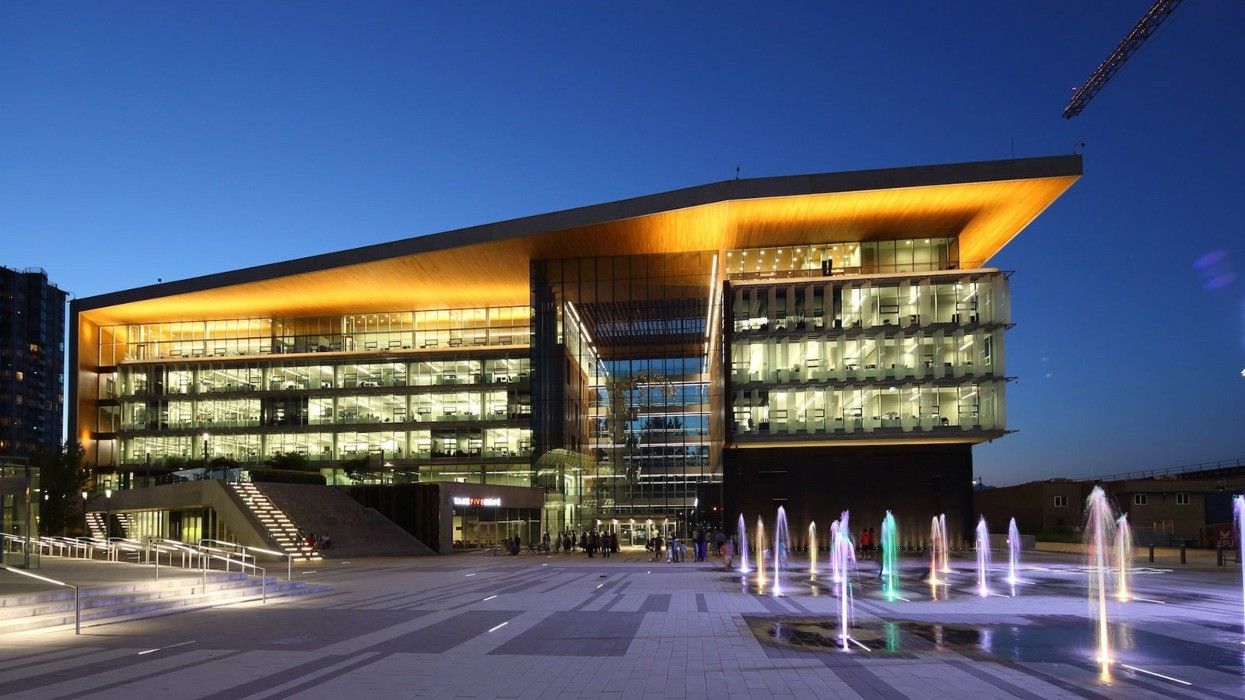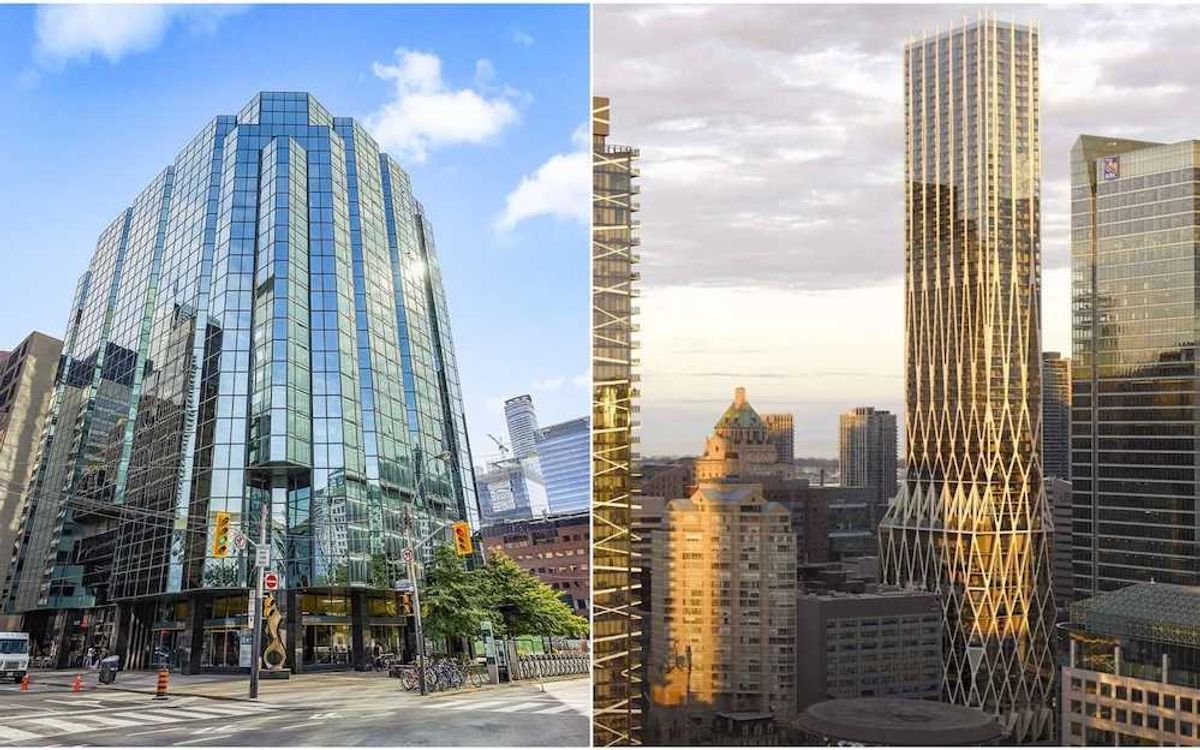For the last few years, the dominant topic of conversation in Surrey has been the (still) ongoing saga with its police force transition, which has somewhat eclipsed the fact that Surrey continues to grow at a rapid pace and desperately needs more housing.
Last month, the Government of Canada announced that it had reached an agreement with Surrey that would see the City receive $95M through the Housing Accelerator Fund (HAF) — an amount that was second in BC only to Vancouver's $115M and more than double Burnaby's $43M.
On the heels of that announcement, City staff have now begun to flesh out their action plan in order to meet the requirements of their agreement, which have to be met before future installments of the funding will be dispersed.
The Money
Per the payment schedule, the City will receive 25% of the $95.6M upfront followed by two installments of 25% each based on annual progress reports about the implementation of their action plan. The remaining 25% will be based on meeting their housing growth targets.
According to the City's spending plan, it is planning to use the funding on priorities such as supporting the implementation of the action plan through internal improvements (more staff, securing office space, new software), investing in engineering infrastructure, seed funding for the resurrected Surrey City Development Corporation, acquiring land for affordable housing partnerships, and other acceptable uses of the funding.
If everything goes according to plan, the City of Surrey will receive the final 25% installment by December 2026 and will then have until September 2027 to spend the funds.
The Action Plan
The City included two high-level housing projections in its Housing Accelerator Fund application: the total number of permitted housing units projected without the action plan and the total number of permitted housing units projects with the action plan. With the action plan, the City says it expects to increase the amount of housing delivered by 27.8%, to an average of 4,283 permitted per year.
The action plan consists of eight key initiatives.
1. Stimulate development through a Rapid Transit Development Incentives Program and an Affordable Housing Development Incentives Program.
Amidst the COVID-19 pandemic, the City created the City Centre Incentives Program to aid the development industry, a program which ultimately incentivized 2,200 new housing units, the City says. Similar to that program, the City is now planning to create two short-term incentive programs that would stimulate development in Surrey.
The first is the Rapid Transit Development Incentives Program. This program would offer developers a rebate on rezoning, engineering site servicing, and building permit fees, for projects that are within 1.5 kms of a SkyTrain station or RapidBus route along the 104 Avenue corridor in the Guildford Town Centre – 104 Avenue Plan Area, King George Boulevard to Newton Town Centre, Scott Road to 72 Avenue, and 72 Avenue between Scott Road and King George Boulevard.
The second is the Affordable Housing Development Incentives Program, which would offer a similar rebate on rezoning, engineering site servicing, and building permit fees, as well as rebates on development cost charges (DCCs), for projects anywhere in Surrey that will deliver below-market units. The City says this program would also accept a surety bond, in lieu of a letter of credit, for servicing agreements.
The fee rebates offered by both incentive programs would essentially be reimbursed through the HAF money. The City says that projects that want to take advantage of these two programs will also be reviewed "in an expedited fashion." Both programs would run until August, 31, 2026.
2. Expand the Guaranteed Permitting Program.
In July 2022, the City launched its Guaranteed Permitting Program, which guarantees processing times for single‐family building permits, tenant improvement building permits, and rezoning applications.
With the HAF money, the City will now look to improve the program to include "high-volume permit types," such as those for townhouses, low-rise buildings, high-rise buildings, and more complex rezoning applications.
Additionally, the City says it will also explore other ways it can reduce the overall application processing time, as well as policies that could cut down on projects idling.
3. Increase the use of professional reliance in the permit approval process.
Like many other municipalities, the City of Surrey has a Certified Professional Program that allows applicants to seek out third-party certified professionals to ensure their applications are compliant with City policies, reducing the amount of review from the City and thus speeding up processing timelines.
With the HAF money, the City wants to improve the program by further delegating some of the decision authority to trusted certified professionals, to the point where a professional's assessment "becomes the basis for the municipality's decision to issue a building permit, rather than the municipality conducting its own independent evaluation."
Implementing this would require further clarity on the "legal framework and professional reliance," the City says.
4. Leverage digital permitting, including the use of AI.
Yet another initiative focused on improving application processing, the City wants to continue to improve some of its existing digital permitting technology.
In 2020, the City shifted towards digital permitting via Citizen Portal and the land management system known as AMANDA. In 2022, the City launched the Building Permit Inspection Request Online Module.
It's now seeking to expand the City's capabilities in order to provide "end-to-end digital permitting capabilities across all permits," whether they be building permits, area planning permits, or engineering permits. Part of that would make use of AI, which could support staff in evaluation processes and aid applicants with understanding development requirements.
5. Increase the supply of multi‐unit housing near transit.
This initiative would entail the City updating its overarching zoning bylaw to "readily accommodate high-density residential uses within rapid transit corridors."
This would include reviewing the City's Official Community Plan and various neighbourhood plans and amending them where needed to permit high-density multi-unit housing near transit areas, without the need for traditional lengthy review processes. The City says it may also create new multi-family zones that are market responsive and have adjusted parking requirements.
Furthermore, the City could refine its existing Density Bonus Policy to also include affordable rental incentives, as well as review sites designated for office use and potentially also allow rental residential use.
6. Support the creation of “missing middle” housing.
The City says it believes in the 15-minute neighbourhood concept and wants to diversify the city's housing stock.
To do this, the City says it will implement the necessary policies to allow accessory dwelling units in existing zones. Current single-family zones could come to allow secondary suites, other existing zones would be amended to allow infill densification, or entirely new zones could be created, such as zones specifically for triplexes and quadplexes.
7. Increase the supply of below-market affordable housing.
This initiative aims to remove barriers that prevent more below-market housing from being provided. The City says it will do this by analyzing financial considerations of housing providers and trying to lower those barriers.
Potential actions include partnering with the Metro Vancouver Regional District or BC Housing to expedite affordable rental homes, reviewing its community amenity contributions (CACs), DCCs, Density Bonus Program, Rental Housing Redevelopment Policy, and Inclusionary Housing Policy.
8. Review and increase staff capacity.
The City says it recognizes that the above action plan initiatives will generate more work for staff, and the City will thus need to create new temporary project positions to maintain and improve service levels.
The City says other municipalities that have received HAF money may be in the same position, making retention of existing staff "paramount," particularly considering the lack of planners across British Columbia.
"Managers and Supervisors will develop and implement a comprehensive staff retention plan to prevent losing experienced staff. This plan will also include measures to facilitate the onboarding of new staff," the City said. "Through a review of regular full‐time positions and associated workload, managers seek to better inform long‐term staffing plans, including individual file‐load, role expectations, decision‐making authority, and advance a proactive approach to the approval process."
Aside for implementing its action plan initiatives, Surrey and other BC municipalities are also in the process of implementing the various changes that were introduced with several new pieces of provincial legislation, setting municipal governments up for a busy, busy year.
- Surrey Receives $95M From Federal Housing Accelerator Fund ›
- Three Towers Up To 37 Storeys Proposed Near Surrey's Gateway Station ›
- Surrey Development Cancels 401 Affordable Ownership Units Amid Economic Woes ›
- City Of Surrey Raises DCC Rates, Expands Exemptions ›
- Fraser Valley Real Estate Seeing "Buzz In The Market": FVREB ›
- Surrey Greenlights Development Plan For Scott Road - 72 Avenue Corridor ›
- Every City That's Received Housing Accelerator Funds (MAP) ›
- Surrey To Grant As-Of-Right Zoning For Non-Market Rental Projects ›




















